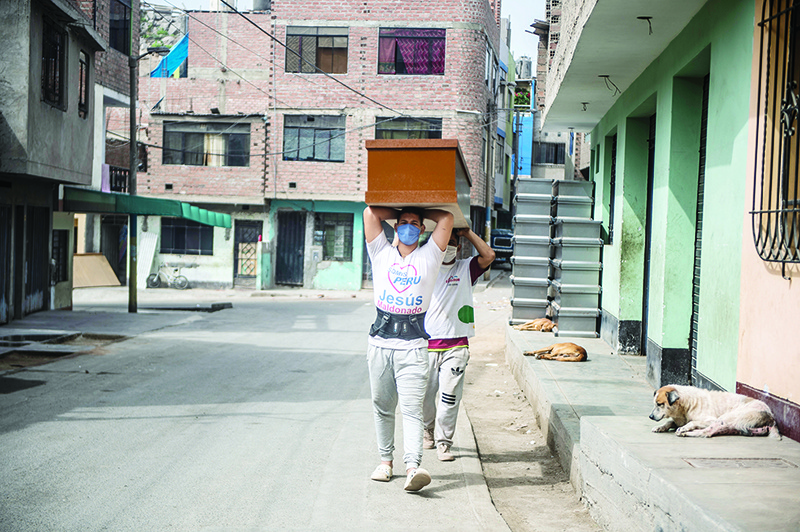
LIMA: Peru has freed 1,500 inmates over the past two months to ease overcrowding in prisons that have seen riots and deaths from the coronavirus. The announcement of the freeing of people serving time for minor offenses was made in a weekend statement by Justice Minister Fernando Castaneda. On April 14, the government pledged to free 3,000 prisoners to ease overcrowding. Peru has the second-most coronavirus cases in Latin America after Brazil, reporting 229,736. It is third in deaths after Brazil and Mexico, with 6,688.
Inmates fearing contagion with the virus in jam-packed prisons have staged several riots in Peru. The last of these came on May 19 in the south of the country, and left 14 prisoners and guards injured. The government says at least 212 inmates have died of COVID-19 and at least 67 are being treated for it in hospitals. Another 15 prison guards have died of the disease and 17 have been hospitalized. Hundreds more have resigned, fearing infection. In the worst prison riot, nine inmates died in an uprising in late April at a prison near Lima. A total of 67 prisoners, guards and police were injured. The Justice Ministry says 97,000 people are in prison in Peru - representing roughly double the capacity of the country’s 68 prisons.
‘Punish with lashes’
Peruvian peasant brigades, who decades ago battled leftist rebel groups, are now doling out rough justice in a bid to slow the spread of the novel coronavirus in the Andean country, which has the region’s second highest number of cases after Brazil. The elected community militias, who in normal times solve odd cases of infidelity, robberies of chickens, or go after badly-behaved mayors, judges and other officials, say they now use lashes to punish those breaking quarantine.
“According to the crime, you can punish with lashes,” Aladino Fernández, the president of a group in the northern highland region of Cajamarca, told Reuters by telephone. “A serious crime would be about 15 lashes.” After their creation in the 1970s the militias expanded throughout the country’s rural highland areas, where there is little state administration. In cities and urban areas, the police and judges enforce law and order. After a coronavirus quarantine was declared in March, the peasant brigades in Cajamarca closed their regional borders and imposed social isolation measures, which has kept cases in the area low with just over 1,000 diagnosed infections.
In the southern area of Puno, with 1.2 million inhabitants, there have been 526 infections and 9 deaths. In that region the militias also took control after the start of the lockdown. “For a person to correct himself, according to our grandparents, it has to be three lashes, it has to be an odd number. If it’s two the person doesn’t correct himself, that is the belief,” said Vinter Apaza, president of one local group. While critics say these groups over-use violence, the brigades’ activities are recognized under Peruvian law after they played an important role in the decades-ago fight against leftist Maoist rebels known as the Shining Path. — Agencies










